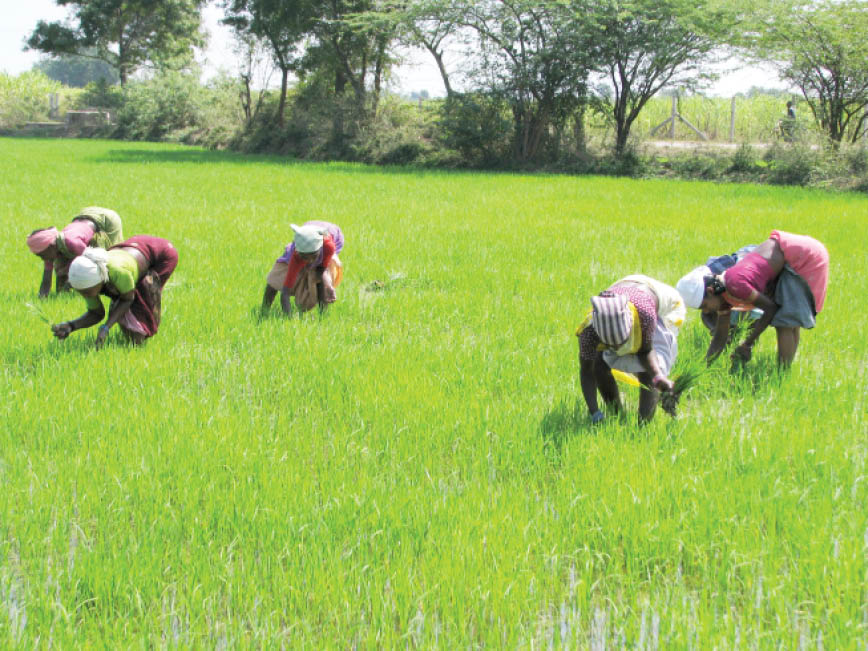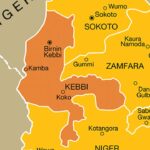There is joy in the faces of farmers in Kebbi State as most of them can now harvest yields of similar output from both dry and wet seasons.
Thousands of farmers who are part of WACOT Rice’s out-grower programme in the state now get the required expertise and support to get good farm yields from both farming seasons. This is contrary to the old practice when these farmers relied only on wet season for their production, which was usually marred by floods.
- Oba of Benin, Obaseki differ on repatriation of looted artifacts
Nigeria makes history, shock US in pre-Olympic basketball friendly
The joy of every farmer comes from more yields. If the harvest is twice as much as the previous season, the motivation to cultivate more is higher. While farmers and others in allied businesses benefit from the increased yields, the community experiences improved food security. And the cycle of prosperity continues.
WACOT Rice Limited, a subsidiary of TGI Group in Argungu is working with thousands of farmers in its rice out-grower programme to enhance yield and farmers’ incomes.
Through this programme, farmers are now planting and harvesting in both dry season and wet seasons with almost equal yields. In fact, some farmers have started testifying to achieving a third harvest in the same year. This is through the use of the right inputs, techniques and equipment. This means more paddy for millers and improved income to farmers, even in the dry season.
According to Mr Kabiru Ibrahim, a rice farmer in Dan Kwalli, Argungu, Kebbi State, “In the dry season alone, we go through two cycles, thereby ensuring that we harvest thrice in a whole planting year. This is due to the quality of inputs, training and extension services support we have been receiving from WACOT Rice.”
The programme currently runs in four local government areas and is continuously expanding to meet people at their rural locations.
The company intends to eventually expand this programme to all the 13 rice producing states in Nigeria, from which it procures paddy.
According to the FAO, Nigeria, as at 2019, produced over 7.5million metric tonnes of paddy per annum, which was predominantly grown in the wet season. Through the optimisation of dry season farming with programmes such as the WACOT Rice out-grower programme, this number could double or even triple as most rice-producing states in Nigeria have strong potential for dry season farming.
Alhaji Musa Aliyu, another farmer, said the out-grower programme provided the farmers with quality inputs, such as seeds, fertilisers and herbicides in both wet and dry seasons. It further offers training on good agricultural practices and yield-enhancement techniques. It also provides crop monitoring, advisory services; and at harvest, guarantees the farmers 100 per cent off-take of the paddy at prevailing market price.
To further enhance dry season farming, WACOT Rice has partnered with USAID’s West Africa Trade and Investment Hub to on-board more people, especially women and youths into farming activities.
Through the partnership with the USAID-funded Trade Hub, WACOT Rice will be registering an additional 5,143 dry season farmers to complement its already existing out-grower network in Kebbi State.
The farmers will cultivate over 5,000 additional hectares of land, thereby producing more than 20,000 tonnes of paddy to be used at WACOT Rice’s 120,000-ton rice mill in Argungu.
In this partnership, 50 per cent of the new farmers are women and youths.
The partnership between WACOT Rice and USAID’s Trade Hub was launched in Argungu on May 19, 2021, with the US Ambassador to Nigeria, Mary Bert Leonard explaining that her government’s involvement with WACOT Rice was to sustain food security and creation of more jobs in Nigeria.
At that occasion, the deputy chief of party for USAID’s West Africa Trade and Investment Hub project, Mr Karl Little John, also highlighted the essence of the partnership, which included 60,000 jobs to be provided across Nigeria by the company.
In his remarks, the chairman of WACOT Rice Limited, Farouk Gumel, said over 2,000 jobs had been created by the company due to the partnership with USAID. He stressed that the expansion of the company had given opportunities for more farmers to cultivate more land for rice production.
According to Gumel, “When the company was established in 2017 we hardly sold any product for over three months because customers were always demanding for foreign rice. But today, we are selling Nigerian rice unstoppably and people continue to ask for it.”

 Join Daily Trust WhatsApp Community For Quick Access To News and Happenings Around You.
Join Daily Trust WhatsApp Community For Quick Access To News and Happenings Around You.

